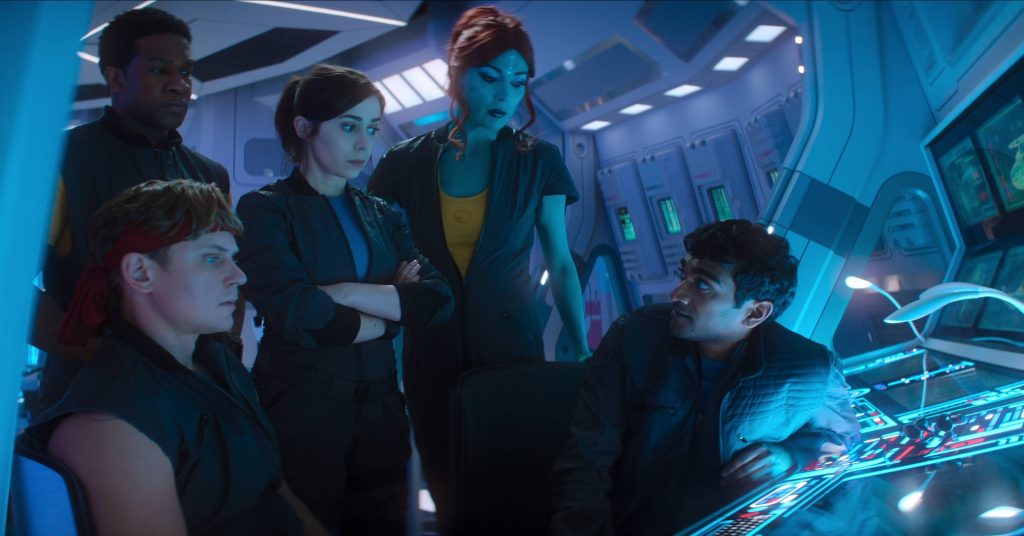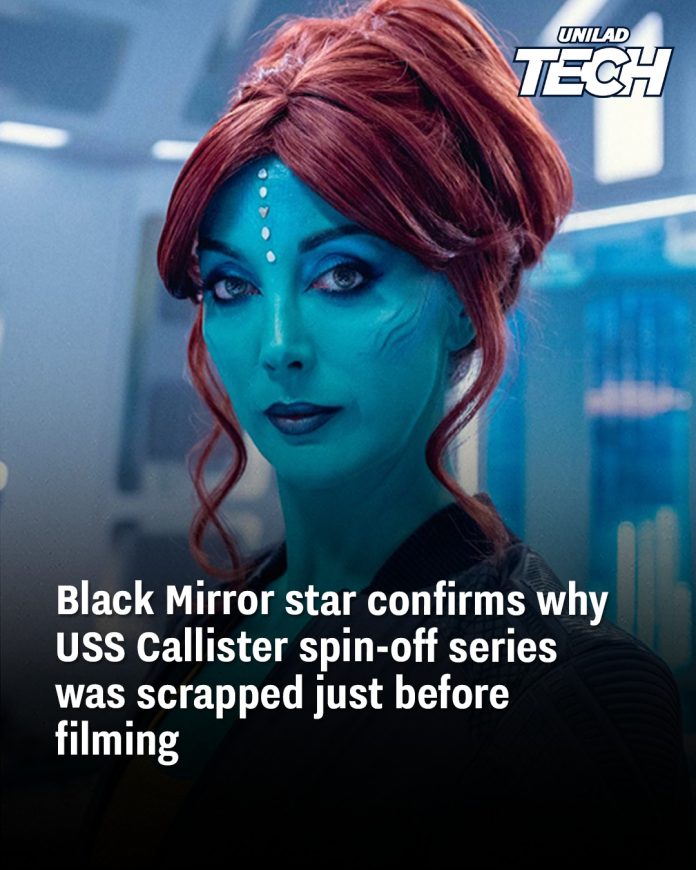The acclaimed anthology series Black Mirror, created by Charlie Brooker and Annabel Jones, has captivated audiences with its thought-provoking and often unsettling explorations of technology and society. Since its transition to Netflix in 2015, the series has produced numerous standout episodes, including “San Junipero,” “Bandersnatch,” and notably, “USS Callister.” The latter, which debuted in 2017, received widespread acclaim and sparked discussions about a potential spin-off series centered on its unique universe.
“USS Callister” is set within a virtual reality game and follows the story of Robert Daly, portrayed by Jesse Plemons, a reclusive but brilliant programmer who creates a digital universe resembling a classic space adventure series. Within this self-created world, Daly exercises tyrannical control over digital clones of his coworkers, leading to a gripping narrative that delves into themes of power, autonomy, and digital ethics. The episode’s innovative storytelling and compelling performances led many to consider it one of Black Mirror’s finest installments.

In light of its success, conversations about expanding the “USS Callister” narrative into a full-fledged spin-off series began to surface. Fans and creators alike envisioned the potential for deeper exploration of the Space Fleet universe and its characters. Milanka Brooks, who played the blue-skinned crew member Elena Tulaska, recently shed light on these discussions and the factors that ultimately halted the project’s development.
According to Brooks, the idea of a spin-off had been contemplated since the episode’s initial release. She noted that creator Charlie Brooker explored several iterations to continue the story and further develop the characters. However, coordinating the schedules of the ensemble cast proved to be a significant challenge. Aligning the availability of key actors, including Cristin Milioti, Jimmi Simpson, and Michaela Coel, was a complex endeavor that contributed to delays in moving the project forward.
The situation was further complicated by the 2023 Writers Guild of America (WGA) and SAG-AFTRA strikes, which brought many Hollywood productions to a standstill. These labor disputes, centered around issues of compensation and working conditions, had a profound impact on the entertainment industry. Brooks explained that the strikes limited the production’s capabilities, ultimately leading to the decision to scrap the spin-off series. Despite these setbacks, she expressed enthusiasm for the opportunity to reunite with the cast and crew for a sequel episode in the upcoming seventh season of Black Mirror.
The sequel episode is anticipated to continue the narrative of the “USS Callister” crew as they navigate new challenges in their digital universe. While details remain under wraps, fans are eager to see how the story unfolds and how the characters evolve beyond their initial escape from Daly’s control. This continuation reflects the creators’ commitment to revisiting and expanding upon the rich worlds established in previous episodes.
The concept of spin-offs within the Black Mirror universe is not unprecedented. The anthology’s flexible format allows for diverse storytelling, and the idea of “Red Mirror” was previously pitched as a label for horror-centric stories within the series. This approach demonstrates the show’s potential to branch out into various sub-genres and explore different facets of speculative fiction.
Reflecting on the broader implications, the challenges faced in developing the “USS Callister” spin-off highlight the complexities inherent in television production. Coordinating talent, navigating industry disruptions, and maintaining creative integrity are all factors that influence the trajectory of a project. Despite the obstacles, the enduring interest in the “USS Callister” narrative underscores its impact and the compelling nature of its universe.

As Black Mirror continues to push the boundaries of storytelling, the revisitation of “USS Callister” serves as a testament to the episode’s lasting resonance. Fans remain hopeful that the upcoming sequel will deliver the same level of intrigue and thought-provoking content that has become synonymous with the series. The anticipation surrounding this continuation reflects the audience’s investment in the characters and the world they inhabit.
In conclusion, while the envisioned “USS Callister” spin-off series faced insurmountable challenges that led to its cancellation, the spirit of the narrative endures through the forthcoming sequel episode. This development not only satiates fans’ desires for more content from the Space Fleet universe but also exemplifies Black Mirror’s adaptability and commitment to exploring complex themes within innovative frameworks. As the series progresses, it continues to captivate audiences with its insightful and often cautionary tales about the intersection of technology and human experience.

















